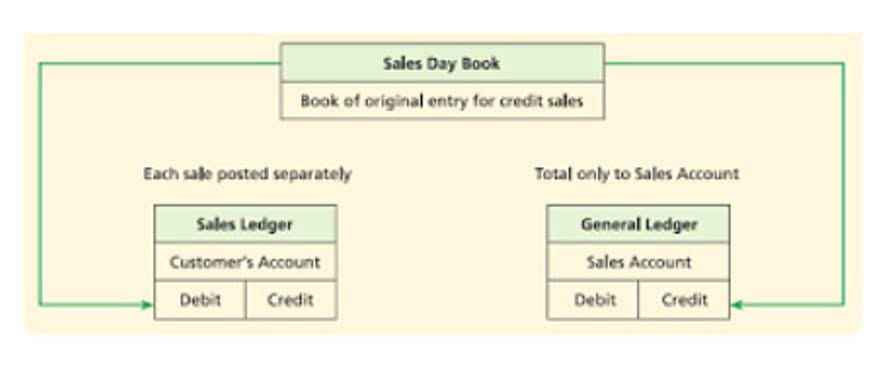
Whether you’re a single mother running a household, a divorced woman starting over, or someone aiming for financial stability, the right… Overall, EFTs cover a broad spectrum of financial activities, significantly modernizing how money moves in the retained earnings economy. In the other states, the program is sponsored by Community Federal Savings Bank, to which we’re a service provider.

Considerations for Choosing Wire Transfers
This includes debit and credit cards, e-checks, ATMs, and Point of sale (POS) transactions. To ensure the utmost security, businesses may opt for wire transfers, while electronic transfers also maintain robust security through encrypted transactions. When considering costs, businesses often prefer electronic transfers for their lower fees, while wire transfers are chosen for their speed despite the higher fees involved. Wire transfers are known for their speed and security, making them a preferred method for large transactions or when immediate access to funds is required. However, they often involve higher fees compared to other electronic payment methods.
What Is Electronic Shifting?
They also tend to have lower fees than wire transfers, making them more cost-effective for smaller amounts. Wire transfer fees can vary significantly depending on the bank you use, the destination of the transfer, and the amount being sent. Domestic wire transfer fees typically range from $20 to $30, while international wire transfer fees can be higher, sometimes exceeding $50. Additionally, banks may also charge a markup on the exchange rate for international transfers, further increasing the overall cost. To initiate a wire transfer, the sender must provide the recipient’s banking details, including the account and routing numbers, to their bank or a wire service provider. The sending institution then communicates with the recipient’s institution via a secure electronic network.

First Horizon international wire transfer: Fees, limits, and rates
For this reason, it’s important to only wire money if you are certain the recipient is trustworthy. ACH credit transfers are when you “push” money online to an account at a different bank, either an account you own or someone else’s account. When you sign up for direct deposit, your employer pays you using an ACH credit transfer. Wire transfer fees can run around $30 for domestic wires and $50 for international wires.
- Say you want to send a relative money for their birthday, but they live across the country and dropping a check in the mail feels too risky.
- Both wire transfers and electronic transfers have built-in security features, but it’s important to take additional precautions to protect your financial information.
- This is done through a secure network, ensuring that the transaction is protected from fraud and unauthorized access.
- Transferring money using wire or electronic transfers may suit different businesses and different types of transactions.
- In 2021, 29.1 billion payments valued at $72.6 trillion were processed via the ACH system.
- Bank transfers rely on encryption and tokenization to safeguard transactions within the ACH network.
What Is An ACH Electronic Transfer
They usually work through online or electronic payments and get their name from the network they use. Automated Clearing House (ACH) transfers are a popular form of electronic payment in the United States, known for their convenience and reliability. ACH transfers are commonly used for recurring payments such as utility bills, loan payments, and subscription services. One of the key advantages of ACH transfers is their cost-effectiveness, with many banks offering low or no fees for these transactions.

Can wire transfers be reversed?

The Automated Clearing House is an electronic clearing network for processing EFTs in the United wire transfer vs electronic transfer States. Transfers are processed and mailed to recipient banks in bulk, every business day at pre-defined intervals. Because they are entirely digital, electronic payments have no paper footprint and can be actioned on the same business day they are initiated. In this section, we will compare the two methods in terms of speed, cost, security, and accessibility. Prevention through accurate details and verification is key to avoiding complications with wire transfers. Wire transfers happen more quickly, so there’s less time to reverse a mistake or fraudulent transaction.
To initiate a wire transfer, you will typically need to provide the recipient’s bank account number, the name of the account holder, and the bank’s routing number. Some banks may also require additional information, such as the recipient’s address or contact details. Other EFT processing timeframes vary depending on the type of electronic transfer. ATMs can offer instant https://www.bookstime.com/articles/what-are-income-statement-accounts withdrawals and cash deposits, while direct debits are usually ready by the next business day. Wire transfers are a specific type of EFT, where payments are sent from one bank account to another through messaging networks like SWIFT or Fedwire. They can be processed directly through your bank or using a third-party money transfer service.
- Whereas wire transfers are typically the go-to for faster international or high-priority transactions.
- Electronic funds transfers (EFTs), or EFT payments, facilitate the transfer of money from one bank account directly to another without any physical currency exchange.
- Promptly reporting any concerns to your financial institution can help mitigate potential losses and protect your assets.
- This reliance on manual intervention can introduce delays or potential errors in the transfer process.
- Both ACH and wire transfers have been around for decades, and aren’t going anywhere.
SoFi does not guarantee or endorse the products, information or recommendations provided in any third party website. Wire transfers and ACH are very different services, despite sounding quite similar. Direct deposits are usually made by government entities or businesses, and not by individuals. Unicorn Group is a top-tier online payment platform and payment gateway services provider based in Switzerland providing innovative online payment solutions for Swiss merchants.

Whether it’s splitting bills with friends, receiving payments from clients, or managing payroll, technology has simplified the process of moving money in today’s digital age. Deciding whether to use a wire transfer or an electronic transfer depends on several factors, including the urgency of the transaction, the amount being transferred, and the cost considerations. Additionally, regularly monitoring your accounts for any unauthorized transactions or unusual activity can help detect and prevent fraudulent transfers. Many financial institutions also offer fraud alerts and notifications to keep you informed about any suspicious account behavior.
